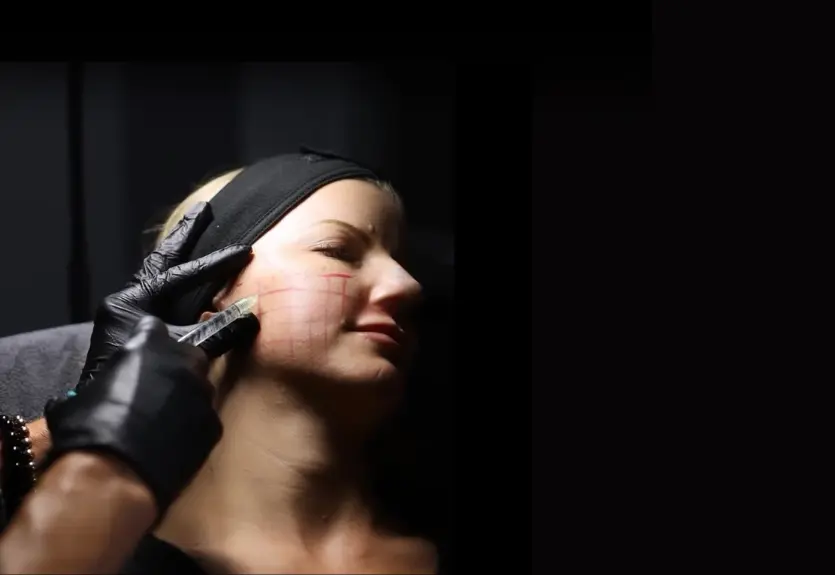It’s time we break down the negative stigmas that surround HRT – Hormone Replacement Therapy, once and for all.
While HRT can encompass a wide variety of treatments involving estrogen and testosterone, we’ll be taking a closer look at the estrogen side of things in this blog – particularly, Estradiol.
Estrogen replacement is often reserved for women who have gone through natural menopause or had a total hysterectomy, as these women can lose natural hormones.
Some signs for women to watch for? Hot flashes, night sweats, vaginal dryness, painful intercourse, dry skin, anxiety, depression, weight gain, and insomnia.
Balanced hormones play a huge role in keeping us healthy, so it’s incredibly important to treat the issue with hormone replacement therapy as soon as you can. As you research treatment methods, you may come across some negative assumptions about hormone replacement therapy.
Let’s break down the most common one about estrogen replacement.
“Does HRT cause breast cancer?”
Before we dive into the specifics, it’s important to understand that not every hormone replacement therapy treatment is the same for estrogen.
Types of Estrogen
There are three different types of endogenous (originating from a living system) estrogen that can be used in HRT:
- E1: Estrone
- E2: Estradiol: a bio-identical hormone that, when broken down in the body, looks like the estrogen a body naturally produces.
- E3: Estriol
If estrogen replacement therapy does not utilize one of those, it might also use synthetic estrogens, like Premarin (mixed synthetic estrogens derived from a pregnant mare’s urine).
Now, let’s take a closer look at any historical ties that would connect HRT to breast cancer (hint: it’s all about the substances used to replace estrogen).
Historical Ties & Truth
In 1993, the National Heart, Lung, and Blood Institute (NHLBI) kickstarted The Women’s Health initiative. This long-term national health study focused on different strategies for preventing heart disease, breast and colorectal cancer, and osteoporosis in postmenopausal women. Part of this long-term study was to analyze hormone replacement in post-menopausal women with a uterus.
Using Premarin (synthetic estrogen) and Provera (synthetic progestin), they tested hormone replacement. These women using both Premarin and Provera were included in the PremPro group. The study was stopped early, however, because the women in the PremPro group(s) were showing higher rates of breast cancer.
Because of that, estrogen became a “bad” word in the medical world. Supposedly, it was reported to cause breast cancer and blood clots when used in hormone replacement therapy, so people were staying far away.
However, JAMA (Journal of the American Medical Association) released an article reversing the findings of that study in 2017. In fact, the women who had been taking only Premarin actually had a decrease in breast cancer and the all-cause mortality of everyone in the study decreased.
Why?
The original study used a combination of Premarin and Provera – synthetic substitutes for estrogen and progestin. When used together, the PremPro group actually did show a higher prevalence of breast cancer.
HRT Proven Safe with Estradiol
So, does HRT cause breast cancer?
It’s less about the treatment and more about the estrogen used. Combined Premarin and Provera can create a higher risk, but Estradiol does not have the same issue.
Because of the research, many medical spas and medical providers began using safer options like Estradiol in their hormone replacement therapy.
Estradiol is a bio-identical substance and can be distributed transdermally by a patch, pellet, or cream. Because its composition matches natural estrogen, it is also received well by the body.
Women who are using Estradiol with an intact uterus must also take progesterone, but it’s often recommended in all women receiving estradiol, because it is breast protective, according to the studies on micronized progesterone.
Additional research has been done with Estradiol and micronized progesterone, and it has been proven that these substances do not show an increase in breast cancer.
Should You Try Hormone Replacement Therapy?
If you are a woman who 1) has gone through natural menopause or 2) had a total hysterectomy & 3) experienced any of the following symptoms, it might be time to explore HRT options for estrogen:
- Hot flashes
- Night sweats
- Vaginal dryness
- Painful intercourse
- Dry skin
- Anxiety
- Depression
- Weight gain
- Insomnia
We are confident that our estrogen replacement treatments can remedy these issues & get you feeling like yourself again.
Got more questions? Get in touch to speak with our professionally trained team. We’d be happy to answer anything from “Does HRT cause breast cancer?” to “How can I tell if I need HRT?” and everything in between.





